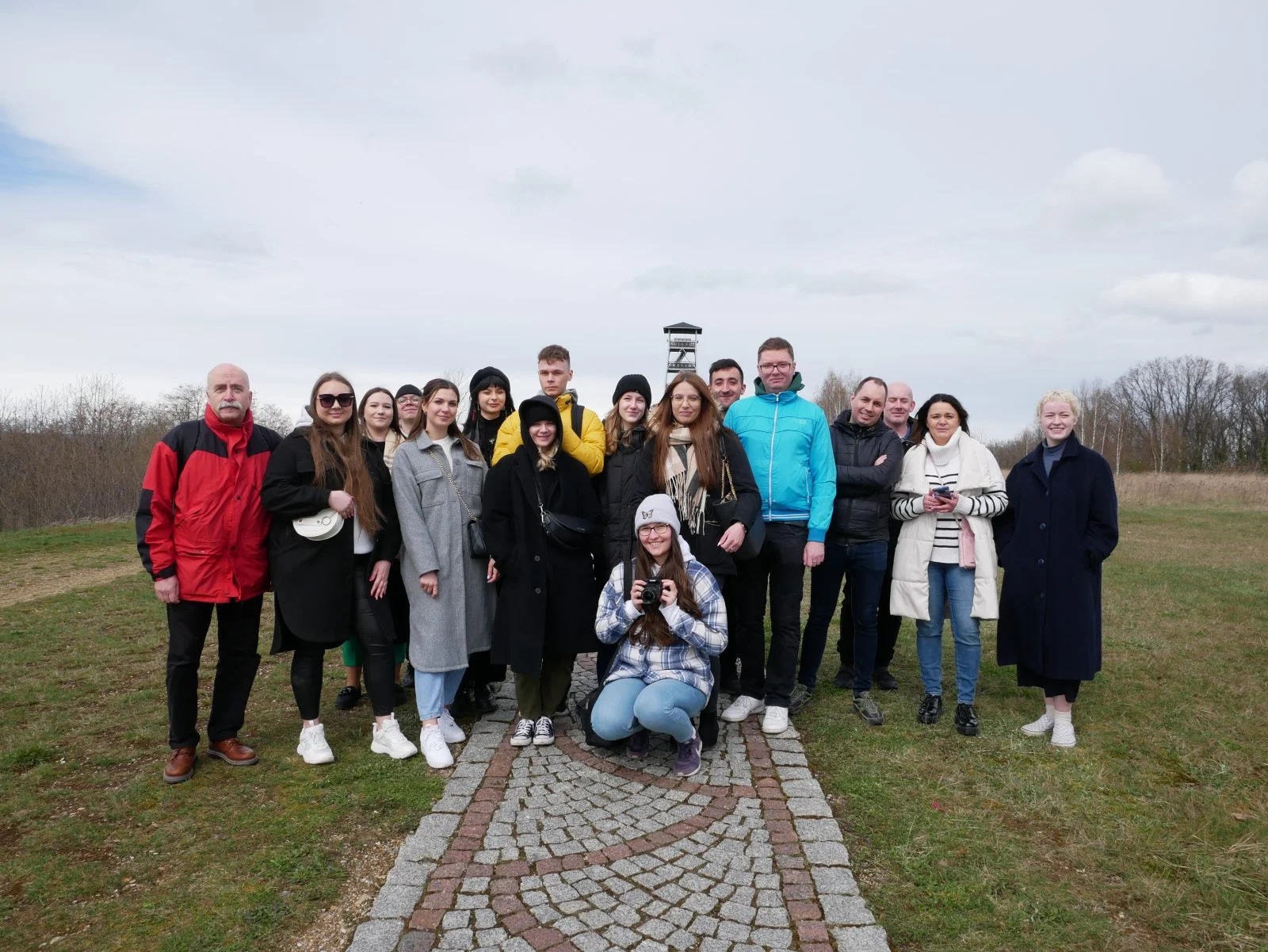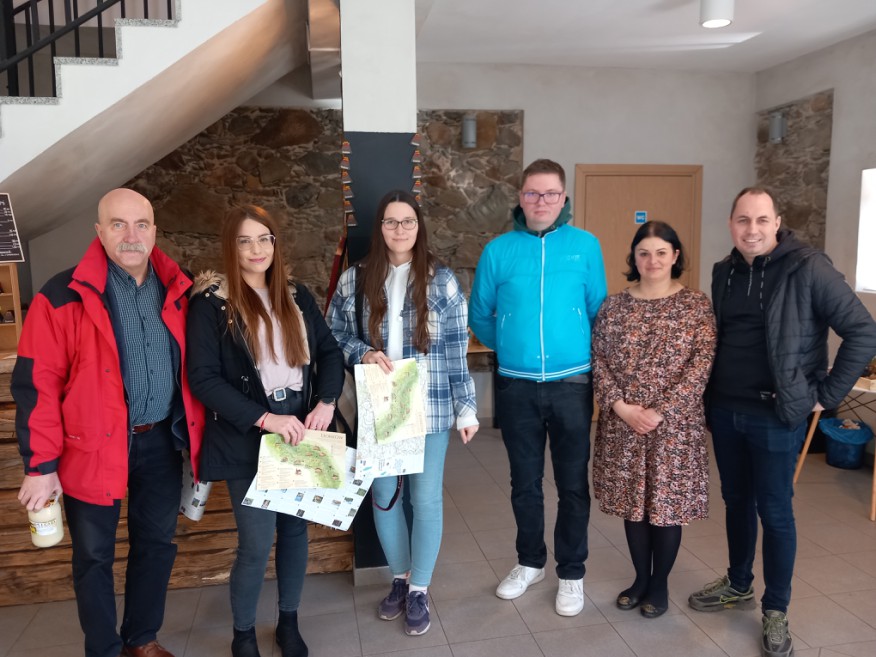
Second-year students of NZPS explored local development in the Land of Extinct Volcanoes
Second-year students of Social Project Management (part-time first-cycle studies) at the Faculty of Social Sciences of the University of Wrocław, on the 15th of April, took part in a research trip to the Land of Extinct Volcanoes (Kaczawskie Mountains and Foothills).
The trip took place as part of the subject ‘Managing local regional development’, taught during the year by dr Andrzej Ferens. The aim of the trip was to analyse the tools of local and regional development management and the effects of changes implemented through projects.
The stages of the projects carried out at the site of the former ‘Gross-Rosen’ labour and extermination camp in Rogoźnica were discussed by the group during a guided tour of the successive sites covered by the projects. The most significant changes were made to the ‘Stone Hell of KL Gross Rosen’ project, which aimed to transform the Gross-Rosen Museum into a spatial museum exhibition promoting historical and social education.
Students of Social Project Management were able to talk to Ms. Magdalena Kopeć, in charge of local development in the municipality of Mściwojów, about the projects being implemented. Mściwojów can be proud of its beautiful views, which can be observed, among other things, from the observation tower located in Winna Góra (the tower was erected as part of the project “Construction of a nature trail in the Wierzbiak River valley together with a viewing point for the Sudeten Foreland”). Other attractions of a recreational and leisure nature, located, among others, at the Mściwojów water reservoir, are also the result of projects carried out in the municipality visited. The subject of obstacles that the project team may encounter on its way was also discussed.
Sudecka Zagroda Edukacyjna in Dobków is a centre run by the Kaczawa Association. Students there met with Ms. Monika Cychowska-Nowak, who explained the origins and operation of the site, as well as how the Sudecka Zagroda Edukacyjna coped during the COVID-19 pandemic. Participants in the research trip not only listened and asked questions, but also had the opportunity to explore the mineral collection and use an earthquake simulator, among other things.
Another point of the research trip was Villa-Greta, run by Mr. and Mrs. Ewelina and Krzysztof Rozpędowski. A place with history, where the students became acquainted with the local cooperation network in Dobków, which consists of recommending each other’s services. This ensures that not only one specific location develops, but that other locations also have the chance to develop. The students’ attention was drawn to the openness of the facility’s owner, who answered any questions they had. He also prepared a presentation to illustrate the success that Dobków is undoubtedly enjoying. Everything is practically close to one another – restaurant, accommodation, green areas, handmade products.
The entire day spent on the research trip was laced with a large dose of positive experiences, but also with acquired knowledge. The phenomena observed will certainly be discussed many more times by the students in class. The juxtaposition of the theories and concepts discussed with reality and seeing local development on the ground with one’s own eyes is undoubtedly an added value not only to the subject itself, but also to the entire Social Project Management studies.
You are welcome to watch a video covering the event by one of the students, Diana Lisowska-Panek.
(video soon)
(Daniel Lis, Paweł Skorb, 2nd year of Social Project Management, the part-time first-cycle studies)


Translated by Wiktoria Łakoma (student of English Studies at the University of Wrocław) as part of the translation practice.



